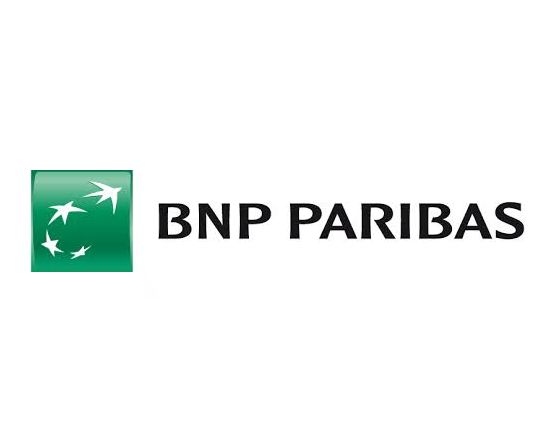- Executive Note
- Editorial note
- Interviews
- Finance and Financial Services
- Events Coverage
Financial institutions – their role in sustainable transition
BNP Paribas | Jun 27, 2023, 12:46


Challenges associated with implementing the European Green Deal and meeting climate targets require sustainable investments. Increasing regulatory requirements and market expectations are driving companies to intensify their sustainability activities. Bank BNP Paribas wants to be a partner in these changes.
There are a number of standards and guidelines related to sustainability and ESG. The first European regulations related to sustainable development are already in force for the financial sector (SFDR – Sustainable Finance Disclosure Regulation) and for the largest listed companies (EU Taxonomy, NFDR – Non-Financial Disclosure Reporting Directive). These requirements are cascading down the value chain to companies’ suppliers and customers. As a result of the new requirements of the CSRD (Corporate Sustainability Reporting Directive), the number of companies subject to the reporting obligation has changed significantly: currently, ESG data are published by about 300 companies in Poland; the new directive will apply to an estimated 3,000-4,000 companies (40,000 to 50,000 across the EU). The new requirements will force companies to take a broader view of the entire value chain in terms of benefits and risks. They will require them to collect data from their suppliers, business partners and customers, including indicators related to greenhouse gas emissions.
It is worth noting the impact of reporting requirements on the activities of companies; to satisfy the CSRD requirements and disclose the expected information, companies will have to systematise and structure their management of ESG issues. They will need to develop measurable strategic objectives with a long-term perspective, establish personal accountability of management for their implementation, and design processes that are reflected in the organisation’s policies. The reporting should clearly demonstrate the link between ESG activities and financial performance
Appropriate management of ESG issues will provide a competitive advantage in supply chains or in the competition for talent in the labour market and it will offer companies easier access to capital. Companies that fail to analyse their impact and manage ESG issues will face the consequences in terms of loss of competitiveness or customer appeal. As the discussion of the European Green Deal and Fit for 55 commenced, it became clear that consumer trends would be a key driver for companies to grow sustainably and invest in transformation in the coming years.
In addition, financial institutions that understand their role in the transition process are the right partners to motivate customers to make sustainable changes. The financial sector has a key role to play in the transition by creating a system of incentives that unlocks or redirects both public and private funds to sustainable investments and projects.
The development of sustainable products and services, as well as support in the form of expert knowledge, fits well into the above-mentioned incentive system for transition investments. At Bank BNP Paribas, we help our customers finance photovoltaic systems or improve the energy efficiency of buildings – through traditional loans or other forms such as operating leases. We also help them obtain European funding for this purpose. To date, the bank has granted loans for the construction of more than 40,000 domestic photovoltaic systems and is involved in the financing of strategic renewable energy projects.
The GObeyond strategy adopted by Bank BNP Paribas for the 2022-2025 periods combines business objectives with sustainable development aspects. One of the bank’s main commitments under the #POSITIVE pillar is to maintain its position as a leader in sustainable finance. The bank is working hard to develop a sustainable product and service offering and to support customers in the transition process. Our goal for 2025 is to boost the share of sustainable financing (sustainable loans and advances, total loans and advances, portfolio measured at amortised cost) from 4.5% (2021) to 10% (2025). To achieve this goal, in 2022 we focused on new product development, including the promotion of a Sustainability-Linked Loan (SSL), which is an ideal tool to support customers in their sustainable transition by setting targets that bring companies closer to achieving sustainability goals. An SSL is a general-purpose loan, where the level of the loan margin is linked to the achievement of specific ESG objectives of the company. SSLs are granted in accordance with the Loan Market Association’s Sustainability-Linked Loan Principles. These principles state that the indicators developed should relate to important area of the company’s impact on its environment. At the same time, the indicators should be verifiable and comparable. Indicators could include the reduction of greenhouse gas emissions or other pollutants, the certification of raw materials, the reduction of workplace accidents, or the fight against social inequality.
We are seeing the greatest interest in financing from large companies that are developing strategic management of the sustainability area. In addition, clients can achieve significant financial benefits by opting for Sustainability-Linked Financing such as SLLs, which links the level of the loan margin to the achievement of specific ESG objectives by the company. It is also an additional driver for improving internal processes while taking into account the company’s environmental and social impact.
In an effort to scale the positive impact and help clients across all segments achieve sustainable growth, in November 2022 we expanded our sustainable product offering to include a new product, the ESG Rating-Linked Loan. The ESG Rating-Linked Loan is a credit solution that allows a company to obtain more favourable financial terms by improving its sustainability management standards, and therefore also its ESG rating. The ESG Rating-Linked Loan is based on simple principles and is available to a wide range of companies. Interested companies can use it as general or special purpose financing.
The bank offers not only financial products but also value-added services that support clients in their sustainable transition. As the EU CSRD mentioned above is implemented, more companies will be required to measure their carbon footprint and publish it in their annual reports starting in 2024. We are already hearing from our customers who export to Germany, for example, that their partners are looking not only at the commercial terms, but also at the carbon footprint. In many cases, it is the level of emissions that determines which supplier is chosen over another. That is why we have launched our Envirly tool, which will be helpful for emission reporting in compliance with regulatory requirements and make it easier to fulfil this obligation. Carbon footprint reporting can be a competitive advantage for companies and the monitoring of emissions data can be an important step in the process of preparing and implementing the company’s energy transition process. We are currently in the pilot implementation phase, with the aim of adapting the tool to the needs of the bank’s clients.
Banks themselves also need to go through the process of sustainable transformation. In their case, however, this applies not only to their operations, but above all to the quality of their loan portfolio. For this reason, Bank BNP Paribas is taking strategic decisions in its relations with clients from the most unsustainable sectors, such as the tobacco and coal energy sectors, to exclude them as clients, while developing its offer to companies wishing to transform their business profile in line with the principles of sustainable development. At the end of the first quarter of 2023, the volume of sustainable financing reached 7.4 billion złotys, i.e. 8.1% of the loan portfolio, which shows that we are on track to achieve our strategic goal of becoming a leader in sustainable financing. In addition, BNP Paribas is currently ranked as the world’s leading financier of environmental projects (Bloomberg rating as of April 2023), with $9.2 billion allocated to this sector.
There is no turning back from sustainable transition. Because of the large number of regulations, market expectations, and pressure from investors, customers and consumers, only companies that are conscious and responsible will survive in the market. For many of them, this will require changes to their business model, operations, or strategic assumptions. Recession and successive crises will test the resilience and stability of the business model, including the maturity of the company’s approach to sustainable development.








